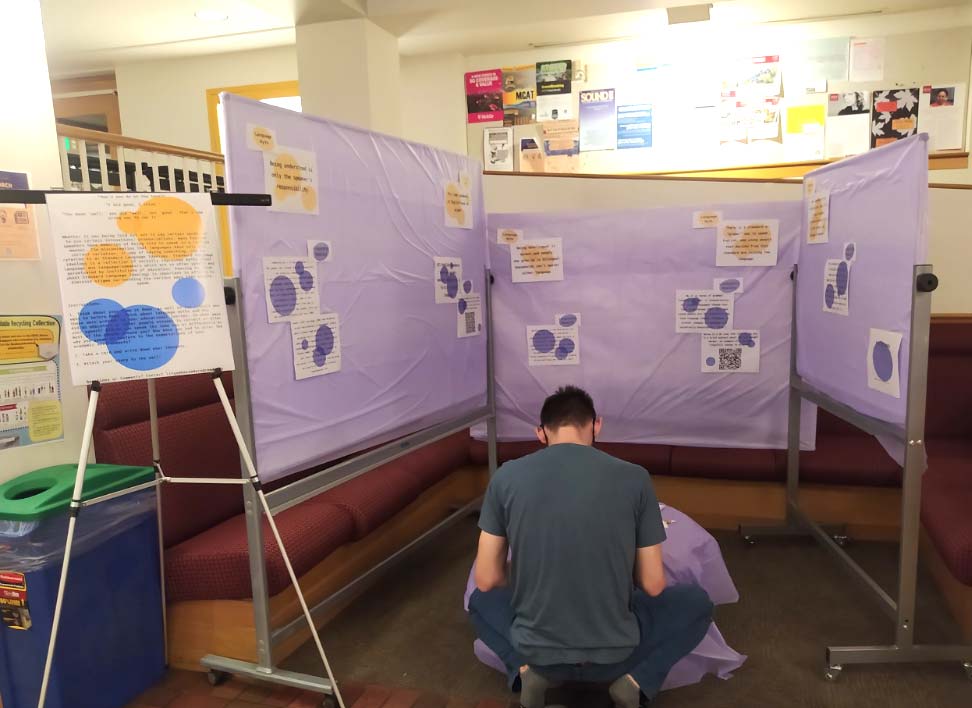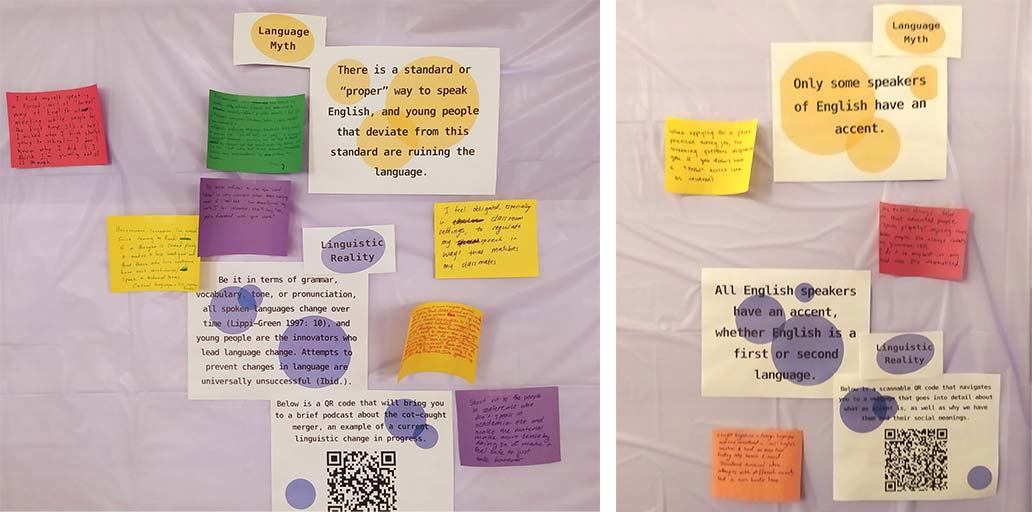How have language myths impacted your educational journey? In fall ‘21 Linguistic Diversity Ambassadors set up an interactive installation asking students to reflect on ways particular language myths have shown up in their own lives.


The Reed Linguistic Diversity Project (RLDP) celebrates the diversity of ways of speaking found in the Reed community.
We conducted a 4 question survey of 252 students in 2019. We found that:
Though many people think linguistic diversity stops at multilingualism, we all speak our native languages differently, too, and this variation is far more widespread at Reed than you may think.
“New Yorkers sound rude.”
“I hate when people say ‘like’ all the time!”
“Her voice is so shrill and annoying”
Maybe you’ve heard casual statements like the ones above - maybe you’ve even said something like this yourself! Most people hold strong opinions about the natural variation that occurs in language. Standard Language Ideology refers to a belief that there exists a single, distinct “right” way to speak a language. In reality, no one speaks this way - yet, most of us believe in a “correct” way of talking. Unfortunately, people whose speech doesn’t line up with this notion of “standard” language, who often hold other marginalized identities, can be evaluated and treated differently, including in the college classroom.
Take a look at the statements above again. We use the term Proxy Argument (Milroy & Milroy 2012) to point that such statements often function not as innocuous judgments of language, but as proxy for judgements about speakers. This can make them quite dangerous - linguists often note that discrimination via these sorts of linguistic bias is one of the last socially acceptable forms of discrimination, precisely because of its ability to fly under the radar. Thoughts concerning the “articulateness” and “correctness” of others’ speech can produce commonplace and often socially acceptable discrimination. Take a minute to think:
To engage the Reed community with these questions,
Our research team conducts on-going research of student & faculty perceptions of the linguistic climate at Reed.
In 2019, we surveyed and interviewed incoming freshmen to learn from students 1) how they label their own language variety, 2) whether they experience linguistic discrimination, and 3) what linguistic features are salient to them as objects of evaluation. We found that 41% of respondents self-identified their language variety as “Standard American English”. This preliminary evidence suggests the presence of a Standard Language Ideology (SLI), defined as the belief by individuals that their language exists in a sole legitimate standardized form (Milroy 2001). At the same time, students report feeling pressure to adhere to this institutional symbolic capital (Bourdieu 1982). For linguistic features, a content analysis (Evan, 2011) reveals that students articulate general observations -- pronunciation, slang, etc - but when guided, frequently mention features linked to youth, such as uptalk, creaky voice, and like.
We currently have a survey in progress in the Reed community, and will share details and findings here once the survey has closed and the results have been analyzed.
Motivated by research findings, we aim to engage the Reed community about linguistic diversity & discrimination via:
If you’d like to get involved with the project, consider applying to be a Lead or Volunteer Linguistic Diversity Ambassador. Lead Ambassadors engage with the Reed community to raise awareness of linguistic diversity on campus and to promote linguistic justice, and are assisted by a team of volunteers. These positions are open to all, and we encourage you to apply! Contact lingambassadors@reed.edu for more info.
If you’d like to deepen your understanding of linguistic diversity and discrimination and how these issues may play out at Reed, contact our ambassadors at lingambassadors@reed.edu and take a look through the following resources: